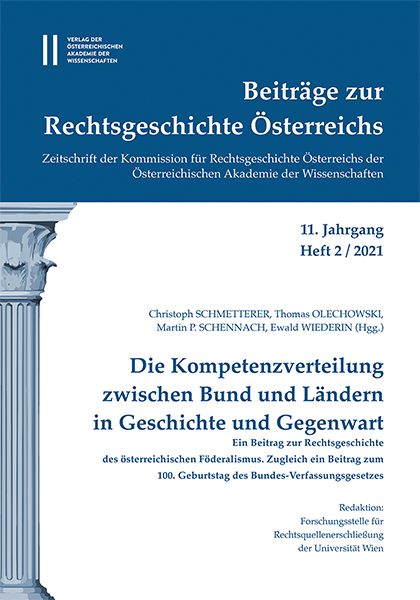
Beiträge zur Rechtsgeschichte Österreichs 11. Jahrgang Heft 2/2021, pp. 225-237, 2021/12/16
Die Kompetenzverteilung zwischen Bund und Ländern in Geschichte und Gegenwart
Ein Beitrag zur Rechtsgeschichte des österreichischen Föderalismus. Zugleich ein Beitrag zum 100. Geburtstag
des Bundes‐Verfassungsgesetzes
Bismarckʹs Constitution is the basis of the most important example of a living monarchical federal state. In it, the monarchical position, even in the constituent states, is clearly more emphasized than in its Frankfurt predecessor of 1849 and left untouched in the text until 1918. On the other hand, however, this position is increasingly undermined by a development which, to the detriment of the constituent states, makes use of farreaching competences – as under the American Constitution – and, moreover, permits amendments and breaches of the constitution by simple majorities.
Keywords: constitution as simultaneous diplomatic paper – contrasts between textual constitution and realities – monarchical instead of republican federation